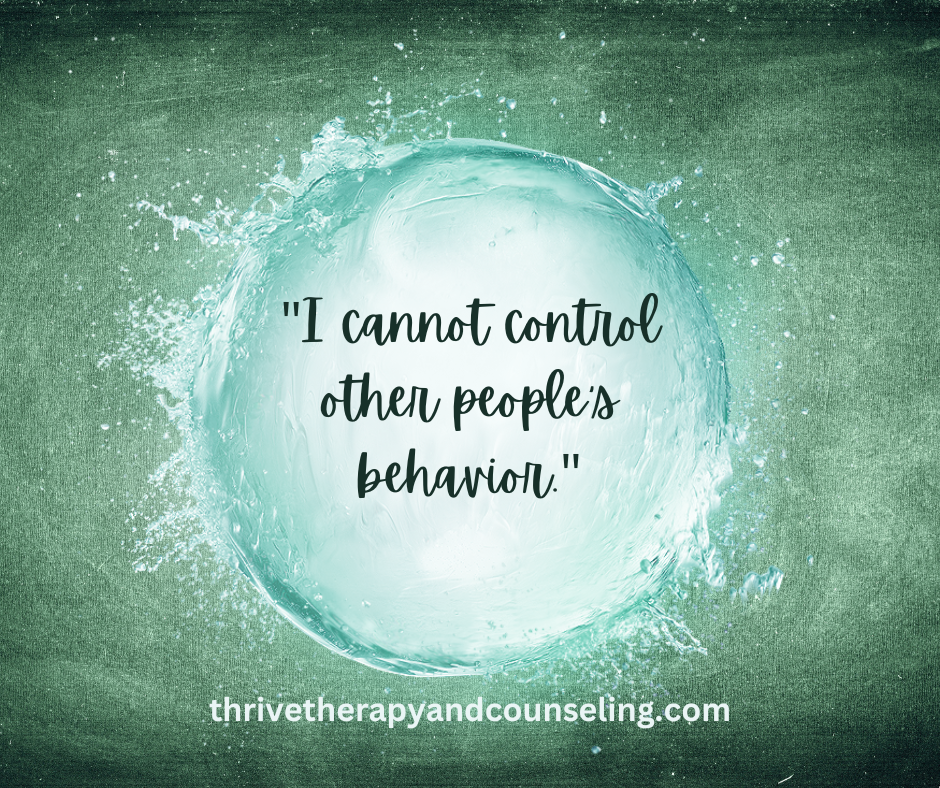We Can't Control Others' Behavior
Ivy Griffin
The idea that we can and should control everything isn’t all it’s cracked up to be. Having control may be presented as "empowering” but it also sends the message that we’re failures if we can’t control something. For example, self-help programs that claim you can improve your relationships through being more assertive may be well-intentioned but unless they're saying "being more assertive may improve your relationships with certain people", they might be inadvertently feeding into the idea that you're responsible for the way others behave toward you. Others’ behavior is not something we can control yet we’re sometimes led to believe we can make others treat us better and that it's our fault when they treat us poorly.
We can't MAKE someone treat us a certain way. We can be clear with others about our needs and boundaries but they choose what they do with that information. The impact of our words has everything to do with the receptivity of the person hearing them and their willingness and ability to examine their behavior. If they don't have it in them to change, no matter what we say or how we say it, they won't change unless they're ready, willing, and able.
When we accept that we are not responsible for others' behavior, speaking up for ourselves becomes exactly that: speaking up for ourselves. We might find it deeply meaningful to speak aloud our feelings and needs because we need to hear our own voice. If we've suffered from a lack of people speaking up for us, it can be incredibly powerful to allow the strong part of ourselves to speak up for the vulnerable part of ourselves. When we let go of the need to control the other person’s behavior, speaking up for ourselves becomes about building trust and confidence in ourselves.
We may also find it meaningful to stop dumping our energy into people who are not receptive or are incapable or unwilling to change. When we believe we're responsible for others' behavior and we keep pouring our energy into unresponsive people, it can leave us feeling drained and despondent. But when we start to accept that their behavior is their choice, we may find that withdrawing our energy from them helps us regain our balance. When we redirect our energies towards our own care, we can begin to heal.
The idea that we are responsible for others' behavior is deceptive and may be propagated in unhealthy, abusive, or oppressive environments in order to trap us in cages of our own self-blame. When we believe it, we continue to pour our energy into unhealthy relationships, which serves to benefit those who mistreat us. When we challenge this mindset, we can become more discerning about who we choose to give our energy to and we can begin to cultivate better relationships with ourselves.
Best,
Ileana Arganda-Stevens, LMFT# 129032
Therapist and Program Manager
Thrive Therapy and Counseling
https://thrivetherapyandcounseling.com/ileana-arganda
916-287-3430
